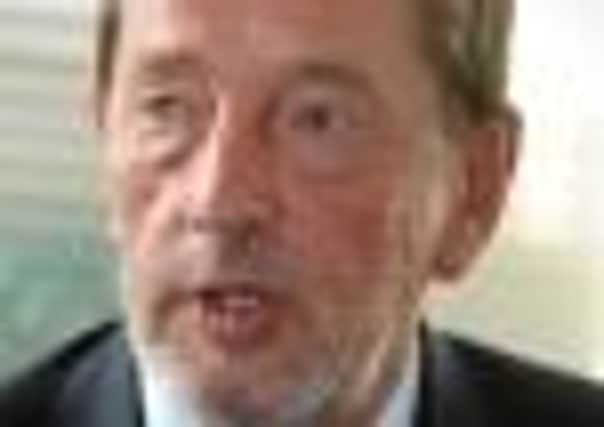Exclusive: Cyber attackers could cripple UK, warns Blunkett


The Sheffield Brightside and Hillsborough MP, who chairs the International Cyber Security Protection Alliance (ICSPA), says the mistrust between countries over the destructive capacity of the internet is now so deep it has returned to the levels experienced during the Cold War.
Mr Blunkett also warns the “darknet”, a secret internet network where users can trade weapons, drugs and security information under complete anonymity, is providing a dangerous vehicle for extremist groups to grow in capability.
Advertisement
Hide AdAdvertisement
Hide Ad“There are now, to coin a phrase, real and present dangers,” he said.
“We have had companies hit in the UK and low-level attacks on Government installations including the Serious Organised Crime Agency, but we haven’t had the kind of significant across the board attack that would bring down the installations in a city or directly affect the population.
“If they were going to do it, they would try and hit our infrastructure, the mechanisms for closing down our water supply, electricity and gas in addition to literally closing down swathes of the server systems and computers.
“One of these attacks could send us back to the 1950s. What I’ve been pressing for and I think the Government do understand is you need to have both the resilience to stop it and a very sophisticated recovery plan.
Advertisement
Hide AdAdvertisement
Hide Ad“I think there will be an attack, not necessarily in the UK.
“We will see something with a weaker target to begin with.”
The ICSPA, established in 2010 to improve international co-operation over the web, this summer launched a major consultation and claims during the past two years cyber crime has become “industrialised” with critical infrastructure in countries around the world under daily attack from criminal groups and “state-sponsored entities”.
Mr Blunkett said certain imports from suspected countries such as China and Russia are now heavily restricted in parts of the world as it is believed they can contain dormant hardware that can be used in a cyber attack.
“In the old Cold War days it was called sleeper agents,” he added.
Advertisement
Hide AdAdvertisement
Hide Ad“People who nobody thought was working for a communist state would be in a position of some authority in a key position and activated at some point further down the line. Now we don’t know, although we suspect, this is happening with technology.
“So there are elements of technology being placed inside governments and companies using contractors where the hardware and software in them can be activated at any time.
“The difficulty is people can’t see it.
“You could make spy films because we knew it was happening. East Germany had spies in West Germany that were caught and shown to be effective.
“Now we are in a different era where it is not a spy, it is a spy in cyberspace and that is much more difficult to get across. It is like clutching at air. People don’t think it exists, whereas it does.”
Advertisement
Hide AdAdvertisement
Hide AdMr Blunkett, who was Home Secretary when al-Qaida launched its 9/11 attacks on the World Trade Centre and the Pentagon, claims British national security is now considerably better a decade on.
However, he admits the far right and Islamist extremists are gaining new momentum through the internet and says he is “amazed” and “hugely relieved” the Olympics and Paralympics were not targeted in a cyber attack.
“There are large numbers of extremely warped individuals who in the past didn’t have the capacity to move beyond an immediate sphere of influence, now they do,” he said.
“It is political and religious extremism as well. People who have a major grievance against society or even nations.
Advertisement
Hide AdAdvertisement
Hide Ad“This new opportunity enables them to have an outreach they could never have dreamt of. They can reach vulnerable individuals in isolation. It does appear that [Anders Breivik] in Norway was working alone, but the potential for somebody like him to be working with those with similar horrendous twisted minds across the world is quite frightening.
“I think it is highly unlikely there will be a Breivik-type incident in England but we have to be very savvy about what seems like the expression of totally unacceptable views but then turns into the sort of violence we saw.
“They can organise better, they can share better, but so must we.”